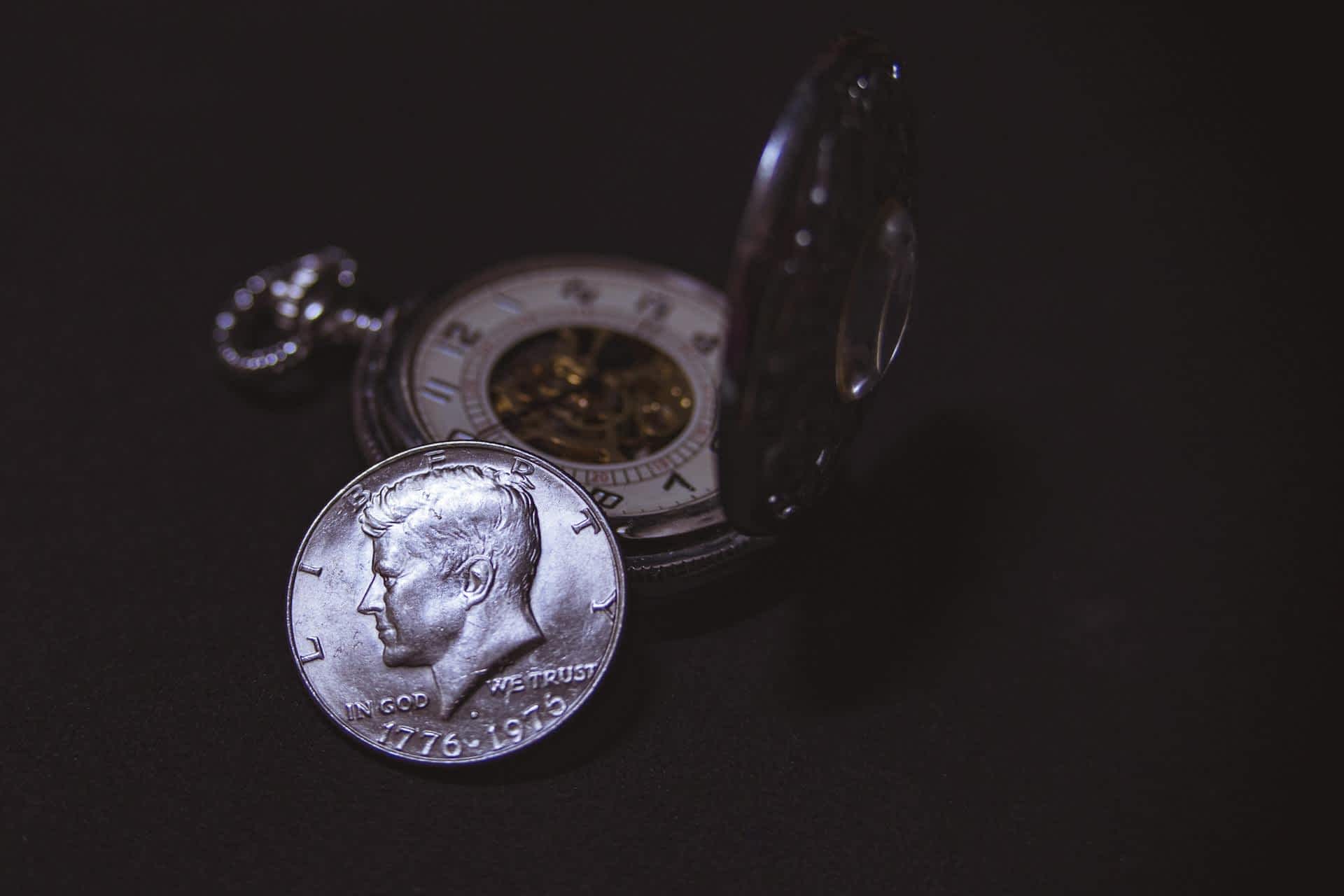
The Difference Between Wealth and Money
True financial confidence starts with understanding not just how much you have — but what it truly means
In the world of personal finance, the terms "wealth" and "money" are often used interchangeably — but they are not the same. Money is a tool; wealth is a condition. Understanding the difference between the two can fundamentally shift how you approach your finances, your goals, and your definition of success.
Wealth is about sustainability, freedom, and security. It reflects your ability to make choices independent of financial pressures. Money, by contrast, is simply a medium of exchange — a means to acquire goods and services. You can have money without being wealthy, and you can build wealth even without a high income, if the right habits and decisions are in place.
Clarifying this distinction is more than semantics. It’s essential for developing a sound, long-term financial strategy that aligns with your values. Once you begin to think in terms of wealth rather than just money, your financial priorities shift from short-term gains to lasting resilience.
In conversations about finance, people often ask: "How much money do I need to retire?" or "How do I make more money?" Rarely do they ask, "How do I build wealth?" — yet this is the more powerful question.
Money is tangible, countable, and transactional. You earn it, you spend it, you save or invest it. It flows in and out. But wealth? Wealth is deeper. It's not just what sits in your bank account. It’s what supports your life, insulates you from risk, and enables your freedom.
The idea that money alone equals wealth is one of the most pervasive misconceptions in personal finance. You can earn a high income and still be financially fragile — just as someone with modest earnings and disciplined habits can build substantial, lasting wealth. Wealth is what remains when the paycheck stops.
Understanding this distinction isn’t just intellectually interesting — it’s foundational. It affects how you budget, invest, and plan for the future. It influences how you define success. And most importantly, it determines whether your financial life brings stress — or peace of mind.
Wealth as a Framework, Not a Figure
Wealth is not a number — it's a condition. It is defined by your financial resilience, not just your financial resources. Someone with $1 million in the bank but $900,000 in liabilities may appear “wealthy” but is living on a razor’s edge. Another person may have far less in nominal terms, but with no debt, minimal expenses, and a steady stream of passive income, they are truly wealthy in the functional sense.
That’s the core of wealth: the ability to sustain your lifestyle without constant financial strain. It’s about freedom — from anxiety, from overwork, from dependence on any single source of income. True wealth creates margin in your life: space to breathe, to plan, to adapt.
This is why wealth is often measured in time, not dollars. Ask yourself: If all your income stopped today, how long could you sustain your current lifestyle? That’s a more honest metric of wealth than any income figure.
Building wealth means building stability — not just accumulating money. It means cultivating assets that work for you, structuring your life with intention, and developing habits that protect your financial future, regardless of external conditions.
Money: The Tool, Not the Goal
Money, on the other hand, is merely the fuel. It enables transactions. It’s essential, of course — but it has no inherent value beyond what it can provide or produce. Chasing money for its own sake often leads to unsustainable choices, short-term thinking, and chronic dissatisfaction.
Too often, we confuse income with security. But money earned and immediately spent doesn’t build anything lasting. It’s transient. High income can create the illusion of wealth, but without savings, investments, or ownership, that money disappears quickly.
Conversely, you can use money wisely to build wealth. That’s where the difference becomes strategic. When you allocate money toward appreciating assets — real estate, equities, businesses — or into structures that preserve it — insurance, trusts, diversified portfolios — you’re turning money into wealth.
The goal is not to hoard money, but to direct it intentionally. To make each dollar a building block of long-term security and freedom. That’s the essence of financial planning: not just maximizing how much you earn, but optimizing how you use it.
Shifting from Consumption to Sustainability
One of the defining traits of a wealth mindset is the shift from consumption to sustainability. In a money-focused mindset, financial decisions often revolve around appearances: cars, homes, holidays, status. But wealth-focused individuals think in terms of sustainability, flexibility, and future-proofing.
That doesn’t mean avoiding enjoyment or denying yourself pleasure. On the contrary, wealth gives you the ability to enjoy life more fully — because your lifestyle isn’t at the mercy of each financial whim or market downturn. It's supported by a foundation.
For instance, someone who owns a modest home outright and lives below their means may feel far more secure than someone in a luxurious property with a large mortgage and variable income. The former has freedom. The latter may feel trapped — no matter how impressive the address.
Wealth is not what you drive. It's not where you vacation. It's not your job title or your income bracket. It’s how well your finances support the life you want — today, tomorrow, and ten years from now.
The Role of Advisors in Building a Wealth-Oriented Strategy
Recognizing the difference between money and wealth is just the beginning. The next step is crafting a financial strategy that prioritizes wealth-building — not just income generation.
That’s where professional advice becomes invaluable. A wealth advisor doesn’t just help you “make more money.” They help you develop a plan to use what you already earn more effectively. That includes budgeting, investing, insuring, structuring, and planning — with a focus on long-term outcomes.
They ask deeper questions: What kind of life do you want in five, ten, or twenty years? What risks might derail your progress? What opportunities could accelerate it? Then, they build a roadmap that aligns your current resources with those future goals.
The strategy may include diversified investment portfolios, tax-aware structures, estate planning tools, or retirement income frameworks. But the real benefit is integration — seeing your financial life as a connected system, rather than a set of separate actions.
Technology has made this more accessible than ever. Today’s wealth tools are smarter, faster, and more intuitive. But the human element still matters. Especially when it comes to defining what wealth means for you — not just in dollars, but in priorities, peace of mind, and purpose.
Partnering with Experts: The Key to Building Wealth
At LUXIM, we believe wealth is not just measured in numbers — it's measured in outcomes: freedom, security, and peace of mind. Our mission is to help you move beyond transactional money decisions and toward true, lasting wealth.
We don’t offer one-size-fits-all solutions. Instead, we take the time to understand your life, your values, and your vision for the future. Whether you are a business owner navigating succession planning, a family seeking cross-border solutions or an individual building a long-term investment portfolio, our approach is always bespoke.
Our team of seasoned professionals brings deep expertise in tax regimes, legal frameworks, and wealth structures. We specialize in building integrated strategies that protect, grow, and transfer wealth effectively — across generations and jurisdictions.
LUXIM’s approach is as global as it is personal. We combine macroeconomic insight with a local touch, ensuring your portfolio is not only optimized for today, but resilient for tomorrow. Our recommendations are always grounded in transparency, objectivity, and your best interest.
What truly sets us apart is the depth of our relationships. We partner with you at every step — not just as advisors, but as advocates for your goals. Whether you're defining your financial future or refining an existing strategy, we’re here to guide you with clarity and confidence.
Book an appointment or get in touch with us today to start a conversation. Let LUXIM help you turn money into meaning — and build wealth that lasts.
Related Posts

The True Meaning of Wealth Management
Strategic planning, personalized guidance, and integrated financial decisions are the keys to build lasting wealth and peace of mind

The Power of Smart Investing
Discipline, strategy, and purpose — why true investing goes beyond chasing returns

Rethinking Risk Management
Why protection, planning, and peace of mind are the real foundations of long-term wealth

The True Meaning of Wealth Management
Strategic planning, personalized guidance, and integrated financial decisions are the keys to build lasting wealth and peace of mind

The Power of Smart Investing
Discipline, strategy, and purpose — why true investing goes beyond chasing returns

Rethinking Risk Management
Why protection, planning, and peace of mind are the real foundations of long-term wealth
Disclaimer
The content published on this blog, including articles contributed by LUXIM, is for informational purposes only and should not be considered financial, investment, tax, or legal advice. While we strive to provide accurate and up-to-date information, LUXIM and other contributors do not guarantee the completeness, reliability, or accuracy of the content.
Real estate and wealth management involve risks, including potential financial loss. Past performance is not indicative of future results. Any decisions regarding investments, property purchases, or financial planning should be made based on independent research and consultation with qualified professionals, such as financial advisors, legal experts, or real estate specialists.
Neither LUXIM nor the blog's administrators are responsible for any financial or legal consequences resulting from actions taken based on the content of this blog. Readers should use their own judgment and seek expert guidance tailored to their specific circumstances.